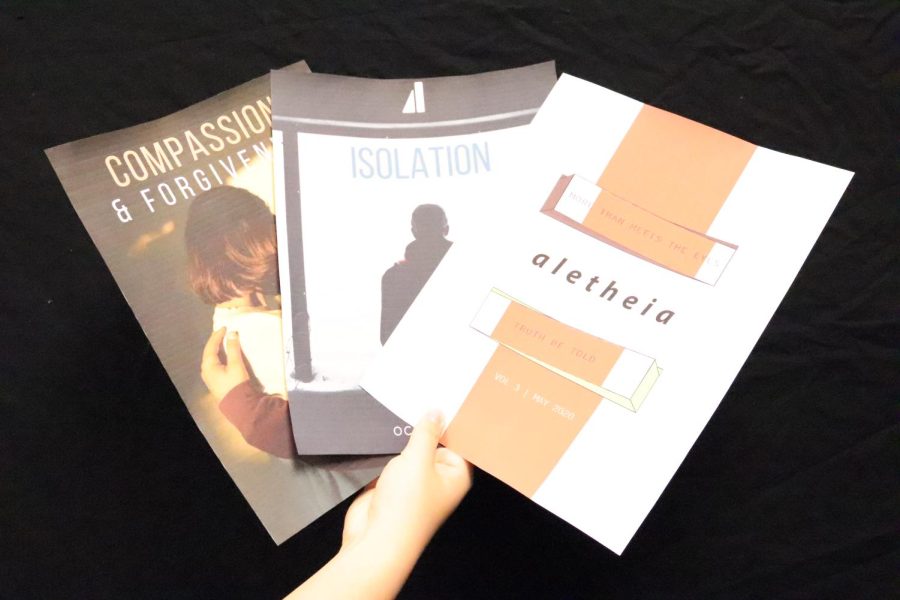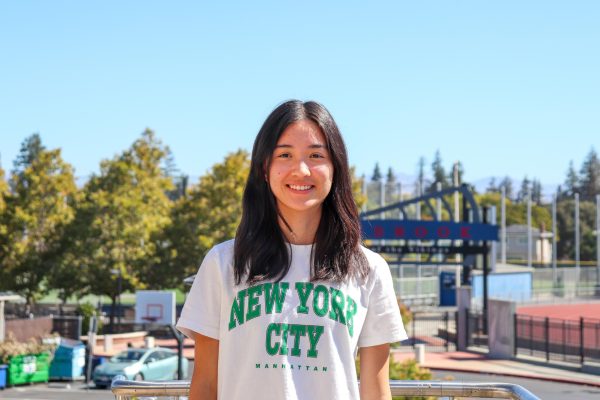Aletheia faces an uncertain future
Compassion & Forgiveness, Isolation and More Than Meets the Eye are three past issues from Aletheia.
March 8, 2022
For the past 11 years, Aletheia, a student publication that publishes anonymous student writing submissions regarding sensitive issues like romance and religion, has provided a platform for those with controversial perspectives to be heard without the judgment of others. However, Aletheia recently caught the attention of Lynbrook’s administrators because it has not followed school rules of having a district-approved adviser, which means it cannot be recognized as a publication officially affiliated with Lynbrook.
The group’s advisers have always been parents of Aletheia members. Potential parent advisers are interviewed based on their passion for forwarding Alethia’s mission statement of providing students with a platform to share stories with peers and the community anonymously. Comparable with teacher advisers, parent advisers supervise meetings, occasionally state their opinions during discussions and evaluate the appropriateness of topics. The publication meets biweekly at a member’s house or on Zoom to discuss the current issue and to brainstorm ideas for the upcoming publication.
“In order to gain support from and be affiliated with the school, like clubs, journalism and yearbook, it must be advised by a certified employee,” Assistant Principal Yukari Salazar said. “That’s just a rule enforced by our district and ASB.”
Aletheia has traditionally made use of the school’s print center, morning announcements, website, homeroom time and publicized parent donation requests. However, the absence of a permissible connection between Aletheia and Lynbrook may lead to the school preventing the group from accessing these resources.
The creation of Aletheia was inspired by Verdedera, Monta Vista High School’s discontinued student publication, which was advised by Hung Wei, a former FUHSD governing board member and a parent to a Monta Vista High School alumnus. After Wei stepped down from her position as adviser in 2017, Verdedera disbanded. However, only this school year has the district realized the need to set an appropriate structure and to follow volunteer screening guidelines.
When Aletheia was first founded, co-founder Frances Guo approached Aletheia’s first parent advisers Cindy Wen and Miko Otoshi, hoping to create a safe environment to discuss taboo topics. The nature of the topics, such as academic pressure and classroom environment, could hinder the members from openly discussing in front of teachers.
Since Lynbrook has no jurisdiction over Aletheia, the publication’s future plans can only be made by the parent advisers and members of the group. If Aletheia finds a certified adviser, which is what Salazar urges, their eligibility for the use of school resources will remain.
Without a district-employed adviser supervising Aletheia’s publication, Aletheia will not be able to use school resources, so they will ultimately need to make a decision on whether to disband, apply as a club, find a certified adviser or continue as an entity separate from Lynbrook.



































































